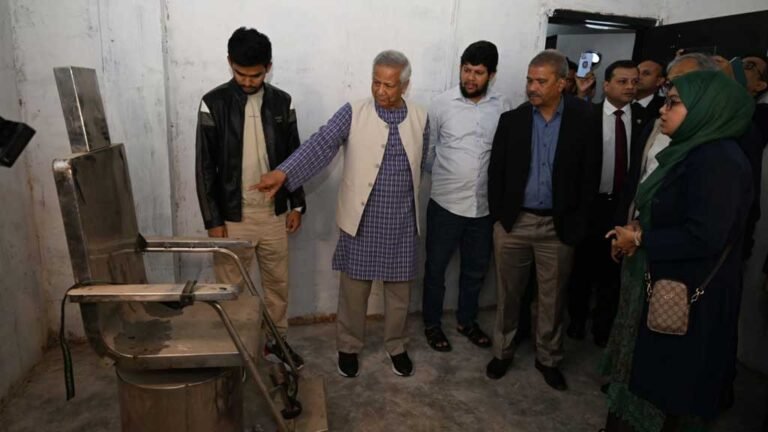Chief Adviser Dr. Muhammad Yunus visited three secret detention centers, previously used for torture and forced disappearances, in Dhaka today. The locations, known as “Aynaghar” or “house of mirrors,” were once used as covert prisons.
Yunus was accompanied by members of the advisory council, the Commission of Inquiry on Enforced Disappearances, victims, and both local and international media representatives.
The sites visited include locations in Agargaon, Kachukhet, and Uttara. Yunus’ visit also included two local media outlets, foreign journalists, and a select group of victims, according to the Chief Adviser’s press team.
One of the notable moments during the visit occurred at a secret prison within the Rapid Action Battalion-1 compound in Uttara, where Barrister Mir Ahmad bin Quasem Arman, a former detainee, shared his harrowing experience of being held for eight years. He recounted his ordeal to Yunus at the site.
Despite the visit, some victim and survivor groups, including the broader community of those affected, were not involved. Mayer Daak, a platform for families of victims of enforced disappearances, protested in front of its Shaheenbagh office, accusing authorities of continuing to deny justice. Sanjida Islam Tulee, convenor of Mayer Daak, voiced the group’s frustration, demanding that all Aynaghar sites be opened to victims’ families. “Those responsible for these crimes are still being protected,” she said.



